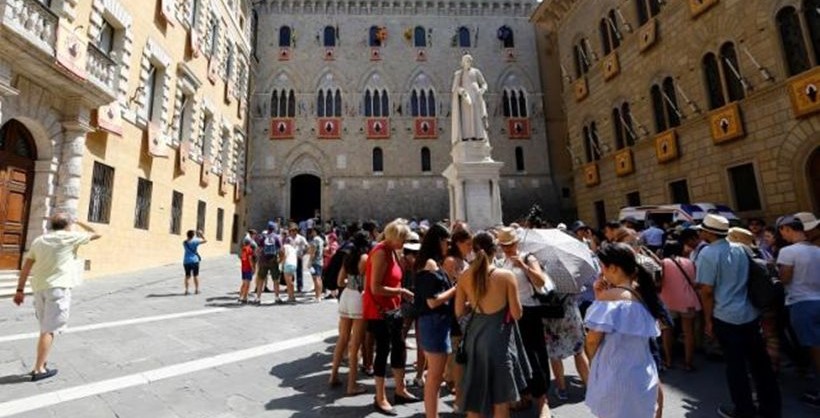July 5 Italy’s bank shares plunged on Tuesday, shaking the financial foundations of the euro zone’s third-largest economy and threatening contagion to other EU nations.
The crisis could push Italy back into recession and, in a doomsday scenario, generate a Greece-type meltdown that Europe would find almost impossible to contain
Italy’s banks are suffocating under a pile of non-performing loans and, adding to the growing sense of instability, Prime Minister Matteo Renzi has promised to resign if he loses a referendum in October on constitutional reform.
Recent opinion polls say he will fall well short.
“Italy faces a severe crisis that is exponential. This is not gradual and not linear,” said Francesco Galietti, head of the Policy Sonar risk consultancy and a former finance ministry official. “The immediate trigger is the banking crisis.”
Italy’s bank sector index has fallen 30 percent since Britain voted on June 23 to quit the European Union, bringing its losses so far this year to 57 percent. The euro zone banking stocks index has dropped 22 percent and 37 percent respectively. On Tuesday, the Italian index lost a further 1.44 percent to trade around three-year lows.
Italy is politically and financially fragile, often described as “too big to save” in a crisis, so even though there is very little direct economic linkage between its banks and the Brexit vote, any global shock creates major tremors here.
“Italy is essentially the fault line of Europe,” said a former IMF official, speaking on condition of anonymity. “Political instability would indeed cause financial instability,” said Guntram Wolff, director of Bruegel, an influential Brussels-based think tank.
Italy cannot afford further financial upheaval.
It has the heaviest public debt burden in Europe after Greece – some 133 percent of gross domestic product – and is ill placed to pump funds into its crumbling banks, which are burdened by some 360 billion euros of doubtful and bad loans, equivalent to almost a quarter of the nation’s GDP.
Source: Reuters


































